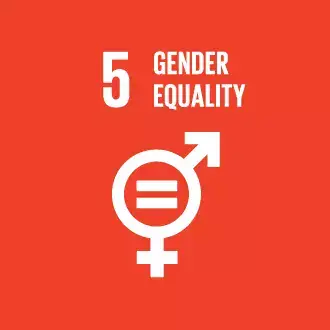

Religion and Gender Equality: Promoting Sustainable Development for All
Women hold up half the sky, yet their contributions to society remain undervalued and their basic rights restricted around the world.
Women and girls are routinely denied equal access to education, health care, decent work, and fair wages. These barriers to opportunity help explain why only about one in four national parliament seats and managerial positions are held by women, leaving their views and concerns woefully underrepresented in decision-making processes. Taken together, the social, economic, and political inequalities that limit women’s potential have undeniably hindered our ability to achieve sustainable development.
One of the biggest obstacles to gender equality is early marriage, which disproportionately affects girls. In 2019, one in five young women was married in childhood. At least 1.5 million girls under the age of 18 get married in India each year, accounting for a third of the world’s child brides. Child marriage violates children’s rights and puts them at higher risks of violence, exploitation, and abuse. For most child brides, marriage also means the end of formal education, severely crippling their ability to develop knowledge and skills needed to help lift their families and communities out of poverty.
Goal 5 aims to achieve gender equality and empower all women and girls. Success means eliminating discrimination, violence, and other harmful practices that affect them including trafficking, exploitation, genital mutilation, and early/forced marriage. This requires universal access to sexual and reproductive health and rights so that women can make their own decisions. Unpaid care and domestic work, which women perform at a rate three times higher than men, should be recognised, valued, and shared within households and families. Balancing these duties and giving women equal rights and access to resources will increase their leadership opportunities in political, economic, and public life. To achieve these targets, governments should adopt and strengthen sound policies and enforceable legislation promoting gender equality and women’s empowerment at all levels.
Religious leaders and faith-based organizations have critical roles to play in ending child marriage and achieving gender equality. As trusted authorities capable of influencing positive change in their communities, more and more faith leaders are refusing to perform child marriages and using their sermons and teachings to raise awareness about its harmful effects. They’re also collaborating with development actors and publicly working to find solutions that empower women and girls and champion their dignity and human rights.
Girls Not Brides is a global partnership of civil society organizations from more than 100 countries committed to ending child marriage and enabling all girls to fulfil their potential. Archbishop Desmond Tutu serves as the group’s Global Champion, and most members work directly with religious leaders to achieve these goals. In India, American Jewish World Service supports organizations that help young women avoid early marriage. In Zimbabwe, the Regional Network of Children and Young People Trust creates competitions that encourage religious leaders to prevent and annul child marriages. Across West Africa, Tostan reminds faith leaders how religious values and human rights overlap, emphasising their essential role in ending child marriage and violence against women.
Working more broadly, UN Women and several partners launched the Global Platform on Gender Equality and Religion in 2017 to encourage cooperation among faith and secular actors and boost SDG implementation. The Platform brings together religious leaders, faith-based organizations, civil society groups, and development experts to address the needs of women and girls. It seeks to increase women’s leadership in religious institutions and provide a space for female religious leaders to convene and hone their skills.
Religions for Peace advances the Platform’s goals by promoting women’s leadership and equipping religious leaders with messages to delegitimize early marriage, end violence against women, and empower survivors of violence. In the Philippines, RfP provides mental health and psychosocial support to help women transcend trauma and become advocates for peace.
In Sri Lanka, the Sarvodaya Women’s Movement draws on Buddhist principles to uplift and empower women so that they can realize their aspirations, hopes, and strengths. This work involves building women’s economic and agricultural knowledge and developing their leadership skills as activists for peace and coexistence. Caritas Internationalis, a confederation of Catholic relief, development, and social service organizations, is motivated by similar aims in its work with women in Bangladesh and around the world.
Islamic Relief campaigns in more than 40 countries to stamp out gender-based violence. The humanitarian organization is guided by Islamic values, which make clear that early and forced marriage violates God-given human rights as well as the sanctity of marriage and family. Islamic Relief also works with women to tackle the economic, social, and cultural barriers that stop them from reaching their full potential.
Much work on women’s empowerment understandably starts with girls. The World Association of Girl Guides and Girl Scouts supports and empowers girls and young women to become responsible global citizens. Each Girl Guide and Girl Scout promises to do her best to her faith and to others as an integral part of this journey. World YWCA works with millions of girls and women across faiths and cultures in over 100 countries to advance gender equality and promote women’s leadership.
These faith-inspired examples represent a small fraction of the religious institutions and faith-based organizations working tirelessly to end child marriage and empower women and girls around the world. The trust and authority communities place in religious leaders make their contributions absolutely vital to achieving Goal 5 and ensuring gender equality for all.